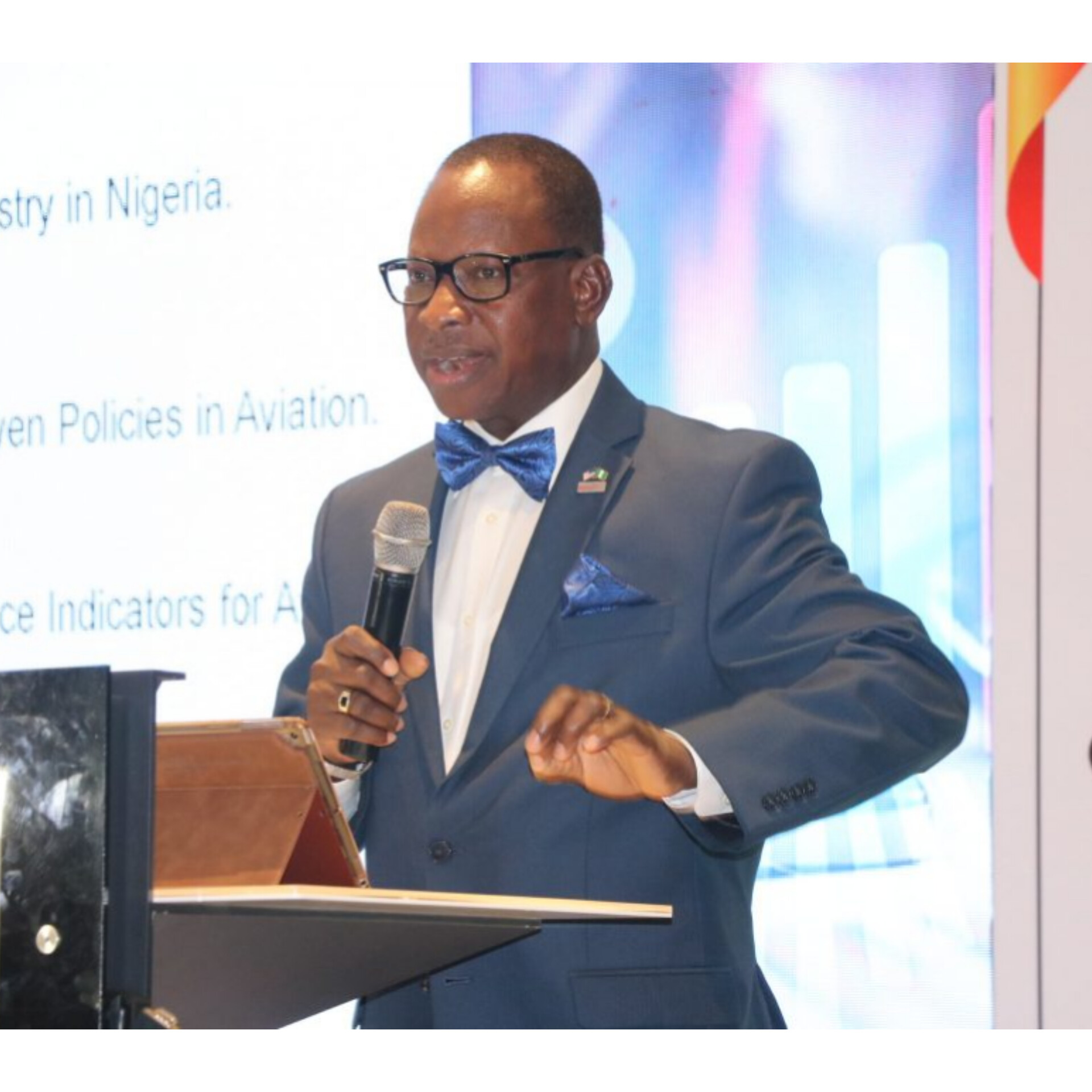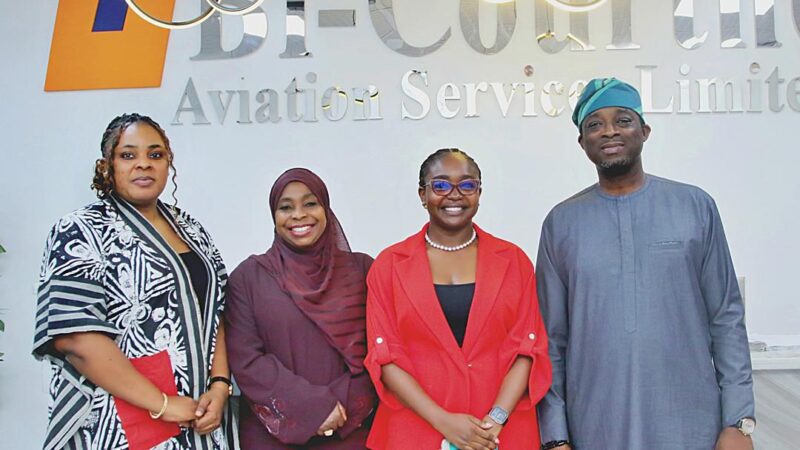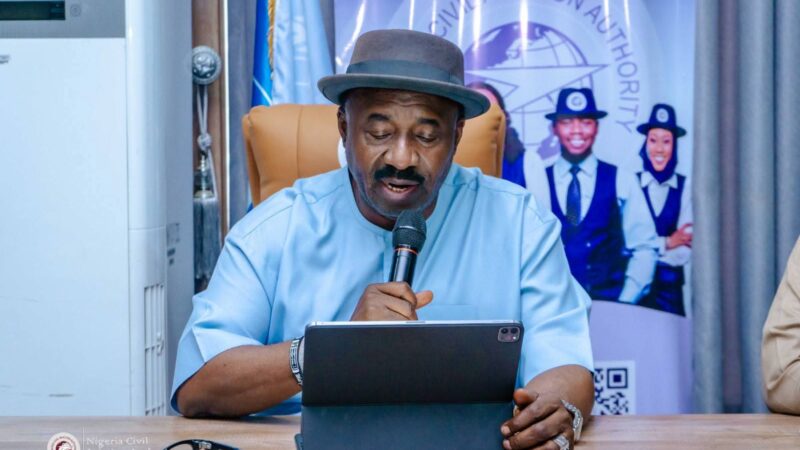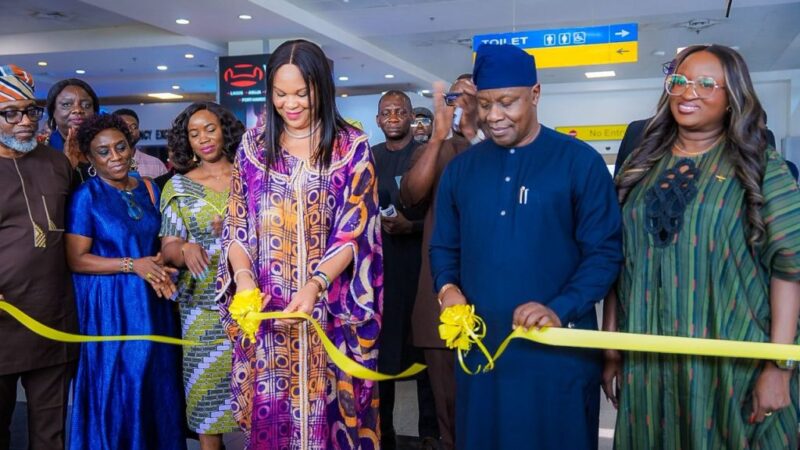Olowo calls for reforms, shift in priorities amidst debt burden, exorbitant charges in Nigeria’s aviation

As Nigeria’s aviation sector grapples with financial challenges and a lack of government focus, the chairman of Sabre West Africa, Dr. Gabriel Olowo has called for urgent reforms and a reassessment of priorities within the industry.
In a compelling presentation at the Business Breakfast Meeting in Q4 2023, organized by the Aviation Safety Round Table Initiative (ASRTI), Olowo identified the pressing issues within the Nigerian aviation sector, questioning the exorbitant charges and unpaid debts that seem to plague the industry.
He began by echoing the International Air Transport Association’s (IATA) characterisation of airlines in Nigeria as cash cows.
According to him, the revelation unfolded during the 55th Annual General Assembly and Summit of the African Airlines Association (AFRAA) in Kampala, Uganda, where IATA announced that Lagos (LOS) and Abuja (ABV) have earned the unenviable title of the world’s most expensive airports.
He disclosed that in Nigeria, passengers face a staggering service charge of $100, dwarfing renowned airports like Doha (DOH) at $44 and Dubai (DXB) at $40.
To compound issues, Olowo said Nigeria carries the burden of the highest aviation debt globally, reaching a staggering $850 million as of May 2023.
Shockingly, the debt profile of Nigeria reveals that a single airline is grappling with an outstanding debt of $281 million trapped in the country.
Recall that IATA had expressed frustration, stating that it has become weary of mediating between the Nigerian government and the airlines.
The situation reached a boiling point in November last year (2022), when Emirates suspended flight operations to Nigeria over its inability to repatriate $85 million revenue trapped in the country.
On Bilateral Agreements and other priorities, Olowo pointed out the challenges in establishing more bilateral agreements, questioning Nigeria’s commitment to resolving these issues.
He remarked, “Are we not interested in the airlines, or why are we not willing to resolve these problems when there are alternative solutions?”
Highlighting the plethora of charges confronting airlines, Olowo argued that the charges are undeniably exorbitant, compared to other countries.
He questioned the rationale for collecting aeronautical charges from airlines operating within the Nigerian airspace, adding that it was completely wrong as such charges are only meant for foreign airlines flying into the country and those flying over the nation’s airspace to other destinations.
He criticised the apparent lack of priority given to commercial aviation in Nigeria by successive governments as he expressed amazement at recent government allocations.
He noted that N5.5 billion ($6.5 million) was earmarked for developing new airstrips and repairing abandoned ones, questioning the logic behind building infrastructure only to leave them abandoned.
Emphasising the need for a shift in priorities, Olowo drew attention to the millions of dollars spent annually on government-funded religious tourism to Jerusalem and Jeddah, arguing that such expenses should be reconsidered and redirected to sectoral projects.
He advocated redirecting these funds towards the aviation sector to enhance the ease of doing business in Nigeria and alleviate the burden of excessive charges.







